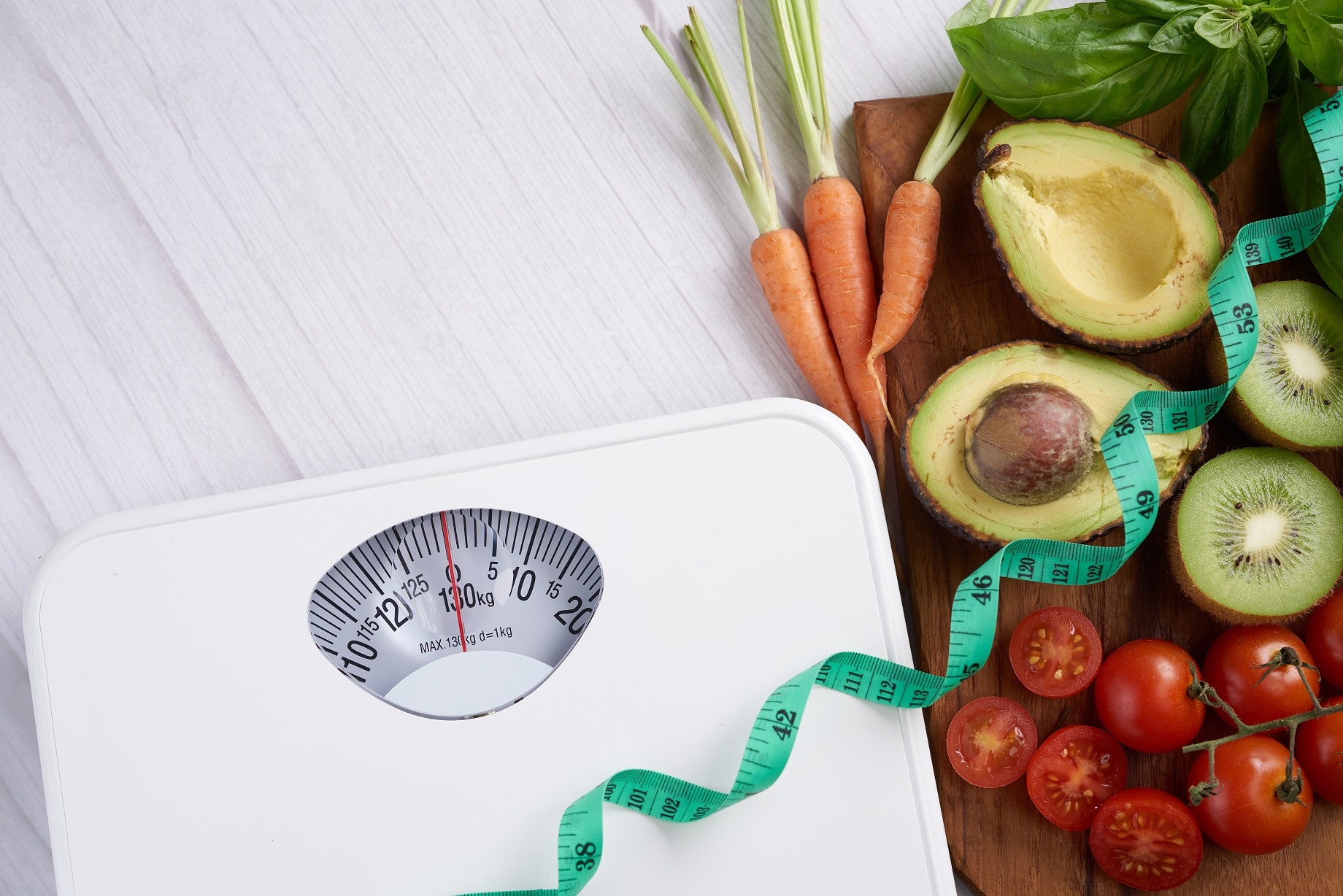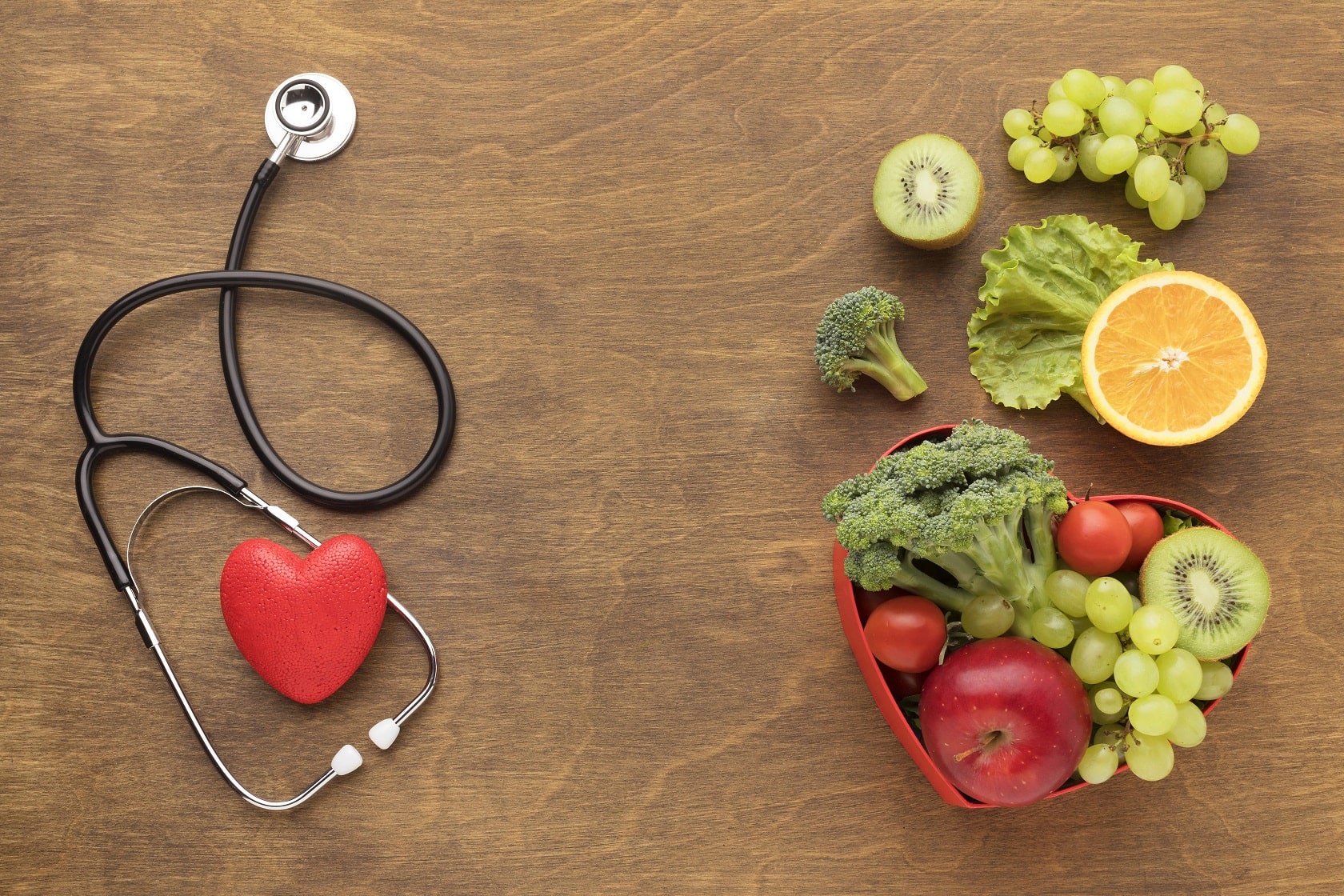A balanced and healthy diet is possible with the intake of different essential nutrients in appropriate amounts. Only to fill one’s stomach, to eat because one wants, to eat to suppress the feeling of hunger, to eat more or less than necessary, and not timing the meals properly are types of unhealthy diets and can lead to many serious diseases, especially obesity.
Today, due to the decrease in physical activity and changes in eating habits, the importance of balanced nutrition has increased to prevent diseases. If a balanced and adequate diet is not taken and the nutrients the body needs are not taken, problems such as vitamin deficiencies, mineral deficiencies, or organ fattening due to excessive intake of nutrients may occur. Uncontrolled malnutrition for a long time can also cause changes in the body’s metabolic activities.
A dietitian’s assistance is necessary to return to the appropriate diet and to create a nutrition program according to the characteristics of the person. Dietitians sometimes prescribe diet programs for the prevention of diseases and sometimes for therapeutic purposes, and they follow these programs. These diet programs are not in a standard structure. In other words, the application of a diet program designed specifically for any person by another person without expert opinion may lead to health problems.
Diet programs should be created by dietitians by the individual’s needs, body structure, and health status. While creating such programs, dietitians take care of the needs of people, while at the same time they create alternatives to some foods that they never want to eat. Contrary to popular belief, dieting is not starvation.
A diet is a balanced, healthy, and adequate diet. Diets are not just used to lose or gain weight. As health professionals, dietitians can create diet programs for many different diseases and follow the program.
Continuity and compliance with the program are important in diet programs. For example, if a person does not follow a diet program prescribed for weight loss and takes even less food than specified in the program to lose weight faster, he or she may encounter serious health problems, lose muscle mass, and may experience the opposite effects while trying to lose weight. While creating such programs, dietitians create a balance by calculating the basic nutrients needed by the body. A diet program that is not implemented correctly will do more harm than good.
Apart from these, diet programs are also applied in special cases such as pregnancy. A personalized diet program should be followed to overcome this sensitive period most appropriately by considering the needs of both the mother and the baby. The types of nutrition that should be followed in each period of pregnancy differ. Thanks to a dietitian follow-up, you can both protect yourself from excessive weight gain during pregnancy and provide the healthiest conditions for yourself and your child with an adequate and balanced diet. Every person from every age group, healthy and sick, should be conscious of a balanced and healthy diet.
Nutrition in Diabetes

Diabetes is a disease that is closely related to the nutritional status of patients. Diabetes can develop due to many different factors in our society. A sedentary life, high blood pressure, obesity, familial predisposition, polycystic ovary syndrome, and high insulin resistance prepare the ground for diabetes. The source of blood sugar in our body is the sugars we take through nutrition. Diabetes patients need to take the nutrients they need in sufficient quantities and regularly for a healthy diet. Diabetes patients need food sources containing carbohydrates, proteins, fats, vitamins, minerals, and fiber.
Regulation of nutrition in diabetes provides control of blood sugar. A diet plan that is high in vegetables, fruits, and grains and contains sufficient fat and protein is the most suitable nutrition plan for diabetics. To provide diversity in the diet plan, it is necessary to make use of change lists. In addition, blood glucose should be measured 90 minutes after meals to determine how blood sugar levels change after which foods in diabetes patients.
There are certain foods that diabetics should avoid in their diet. These foods can be listed as jam, tea sugar, honey, sugar beet, cake, pastry, white bread, biscuits, pasta, rice, crackers, corn, and potato-containing foods. In addition, foods with a high glycemic index are foods that should be avoided for diabetics. Consumption of starch-rich foods in hot and pureed form causes an increase in the glycemic index. The glycemic index can also be defined as the rate at which foods containing carbohydrates raise blood sugar. When foods with high sugar content are consumed, blood sugar rises very quickly due to the mixing of those foods into the blood. Foods with a low glycemic index and a more controlled effect on blood sugar are very safe for diabetics.
There are some foods that diabetics can safely consume and benefit from in their diet. These foods can be listed as milk, dairy products, yogurt, bran bread, whole wheat bread, rye bread, cereal products, green leafy vegetables, dried legumes, apples, grapefruit, and some nuts. Some of the foods that are thought to be safe and beneficial for healthy people may be risky for diabetics. The fruit consumption of the patients must be limited. Fruit consumption is safe if fruit portions are followed. Diabetics need to stay away from foods such as cream, cream, lard, tallow, mayonnaise, head trotter, cake, and confectionery. The diet of diabetic patients with foods with high sugar content causes excessive insulin secretion from the pancreas.
The treatment of diabetes ensures that the person maintains normal life activities, maintains ideal body weight, and keeps blood sugar and blood pressure within normal limits. In these patients, it is necessary to stay within the limits determined for blood pressure and blood sugar. In addition, patients need to reach and maintain their ideal body weight. Regular exercises to be applied by diabetic patients can improve accompanying health problems together with a balanced diet.
Nutrition During Pregnancy

During pregnancy, expectant mothers experience a weight gain of approximately 11-14 kilograms. When foods with low nutritional value but high in calories are consumed, an unhealthy pregnancy process is started by going beyond these limits. Due to various hormones that increase until the end of the first trimester during pregnancy, some problems may occur in the expectant mother. These problems can be listed as vomiting, nausea, and sensitivity to smell. Depending on these special circumstances, there are no sharp rules regarding the nutrition of the expectant mother in the first trimester of pregnancy. After the third month of pregnancy, depending on the more consistent hormone levels, the nutrition of the expectant mother is expected to be in line with certain rules.
Expectant mothers need to take folic acid supplements three months before planned pregnancies and three months after pregnancy. In addition, suggestions can be given to the expectant mother about a fat-free, non-spicy, and low-salt diet. In the first trimester, discomfort such as vomiting, and nausea felt by the expectant mother can be suppressed with healthy snacks . During this period, foods containing additives such as sausage, salami, sausage, ready-made fruit juices, and packaged products should be avoided.
Nutrition of the expectant mother after the third month of pregnancy is very important for both the development of the baby and the health of the expectant mother. From the third month of pregnancy, the daily calorie intake of the expectant mother should be increased to 2200 calories. Feeding with three main meals and three snacks throughout the day is important in reducing the discomfort felt by the expectant mother. During this period, healthy foods containing yogurt, milk, and fruit should be added to the meals of the expectant mother. Daily consumption of yogurt and milk, and egg consumption twice a week are important in meeting the nutritional needs of the baby and the expectant mother. Calcium and protein intake contribute to the development of the baby. In addition, the consumption of red meat is important in terms of providing a protein source. Feeding the expectant mother with a diet rich in protein is necessary for the growth of the baby, the development of the nervous system, the formation of muscles, and the production of hormones and enzymes. The consumption of red meat is a source not only of protein, but also of minerals such as phosphorus, magnesium, zinc, copper, phosphorus and calcium, and B group vitamins. It is important to consume red meat consumed during pregnancy in a well-cooked manner. Cooking levels such as undercooked or medium should be avoided because consumption of undercooked raw red meat has the risk of developing bacteria in the intestines during pregnancy. Consumption of omega 3 and omega 6 fatty acids during pregnancy contributes to the brain development of the baby. Fish, which is a good source of omega 3 and omega 6, should be consumed fresh during pregnancy. In addition, it is not recommended to consume seafood containing high levels of zinc such as mussels, mackerel, swordfish, sharks, and oysters.
Daily consumption of approximately three liters of fluid is necessary for the expectant mother during pregnancy. Consuming enough water helps to reduce uterine contractions and prevent urinary tract infections during pregnancy.
Nutrition in Cardiovascular Diseases

Cardiovascular diseases mostly develop due to reasons such as insufficient physical activity, an unbalanced diet, alcohol, and cigarette use. Problems such as high blood pressure, high cholesterol, diabetes, and sometimes genetic predisposition also affect cardiovascular diseases. Apart from these, obesity or fat around the belly is considered a risk factor for cardiovascular diseases. If cardiovascular diseases are not intervened and controlled, they can cause serious life-threatening diseases such as stroke and heart attack.
Although some drug treatments or surgical treatments are applied, when necessary, in cardiovascular diseases, changes in the patient’s life habits, regulating his eating habits to the disease, and adequate physical activity are at least as important as other treatments. In particular, the nutritional habits of patients are closely related to cardiovascular problems. For this reason, people who are at risk of cardiovascular disease should have a balanced diet and weight control to prevent the disease. People with this type of disease should consult a dietitian to enter a nutrition program suitable for them and their disease. Diet programs applied without professional opinion are risky enough to pose life-threatening risks.
Each disease and each person may have unique nutritional needs, and these nutritional needs may change over time. For this reason, it is important to enter an appropriate nutrition program under the supervision of a dietitian and to follow this program. Foods high in saturated fat often pose a risk of cardiovascular diseases. Elevated bad cholesterol can transmit a person’s illness. Vegetable oils should be preferred instead of animal fats. The nutrition program should contain all the nutrients in a balanced way. In addition, the times of the meals should be well-arranged, and the main meals should be supported with snacks.
A fiber diet is important in cardiovascular diseases. Especially cereals and legumes should be added to the nutrition program for cardiovascular diseases due to their high fiber content and vitamin and mineral content. In addition, the use of salt should be limited and kept at an adequate level. Diet programs to be applied for the prevention of cardiovascular diseases are very important for the health of the person.
If the disease can be controlled before it occurs, very good results can be obtained thanks to diet programs, even if there is a genetic predisposition. Cardiovascular diseases are among the leading causes of death worldwide. Vital risks that may be caused by cardiovascular diseases can be prevented by lifestyle changes and dietary adjustments. Apart from these situations, some patients undergo surgical treatments due to cardiovascular diseases. After such surgical treatments, it is important to enter a diet program to both accelerate the healing process and maintain well-being after recovery. Although surgical treatment solves many problems related to the disease on its own, a balanced diet is necessary for the real success of the surgery and the continuity of the patient’s health.